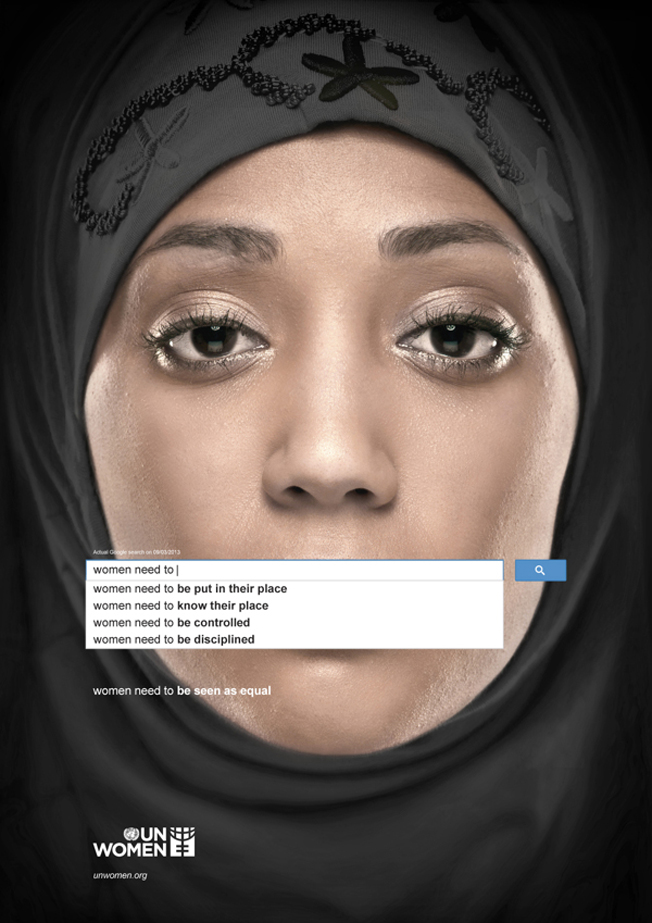
There is no doubting the influence of Google in everyday society. It is one of the few tech-based words to become a verb and is all pervasive in our daily lives. What Google has in spades and why it is such a powerhouse, is data. Every search term we use, every click we make, what we do and when is tracked by Google to constantly refine our online experience. So while this information is predominantly used to personalise our experience, when one looks at the data en masse, some interesting, hilarious or unfortunately, seriously saddening insights become apparent.
The team at Memac Ogilvy & Mather Dubai was commissioned by UN Women to develop a creative campaign revealing sexism globally. Art Director, Christopher Hunt explained that the Google search auto-populate function actually revealed some incredibly negative terms about women, prefaced by statements such as “Women shouldn’t…”, “Women cannot…”, and “Women need to…”. While the skeptic in all of us may think the results are clever art direction and copywriting, they are in fact genuine. That is a powerful insight into a collective mentality, one that reflects widespread, global beliefs. It is disturbing that such views are held (and searched for) so frequently and, according to comments and social media feedback, are not specific to any one country or region.

Working in brand strategy and communications, it is our goal to find insights that can help us work with our clients to tell their story in meaningful, engaging ways. We partake in discussions and workshops and speak to people involved with these brands to try and capture as much information as possible and uncover those stories. The skew is usually positive, as we want to share the best of their brand. But when given the task of building awareness of gender inequality, there are very few positive stories to share. The team involved in this campaign should be commended for their lateral thinking and creative execution. They held a mirror up to society and many do not like what they see. The campaign is based on popular search terms, yet commentary and discussion suggest that the rest of us are simply not aware of how widespread and ingrained these opinions are. Or maybe we were but never had it illustrated in such a confronting manner. Whatever the reason, it has sparked a reaction that may lead to action.
As with all communications campaigns, the success lies in the ability to resonate with an audience through the art of storytelling. Google had already written the framework for their story — Memac Ogilvy & Mather Dubai were simply creative editors. The story they present is an unfortunate and powerful one. Hopefully it is the opening chapter to a longer story that will prompt global change and a shift in engrained perceptions.
Original article here.
Written for Truly Deeply blog.